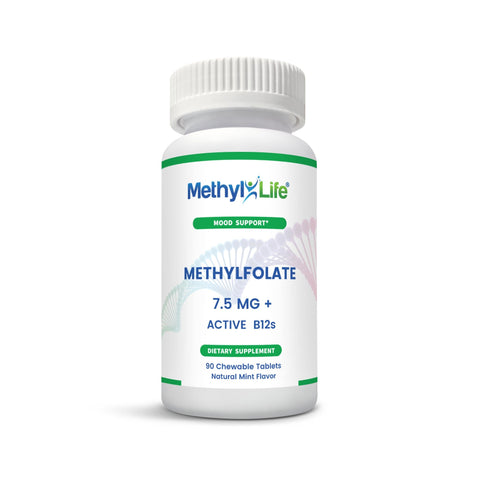MTHFR and PCOS: Is there a Connection?
Polycystic ovary syndrome (PCOS) is the most common hormone-related disorder in women, affecting an estimated 7-10 percent (5-6 million) of women1 in the US. It is also the most common cause of infertility.
Although the etiology of PCOS is largely unknown, recent research has revealed that MTHFR genetic mutations may be linked due to its involvement in the regulation of homocysteine. However, there is no specific evidence to show that MTHFR directly causes PCOS.
Methylenetetrahydrofolate reductase (MTHFR) plays a key role in the metabolism of folate and DNA methylation, and RNA synthesis.
MTHFR is required for the conversion of folic acid in plasma and tissues. However, a mutation in the MTHFR gene can result in low folate concentrations, leading to elevated homocysteine levels2.
Decreased efficiency of the folate/homocysteine pathway appears to be prevalent in women with PCOS3, and that PCOS is often accompanied by high homocysteine levels.
It has also been found that homocysteine levels in women with PCOS return to normal following folate supplementation4, which supports the theory that MTHFR is connected.
This article will discuss what PCOS is and the links to MTHFR mutations. We will also cover the possible treatment for PCOS for those with MTHFR genetic mutations.











